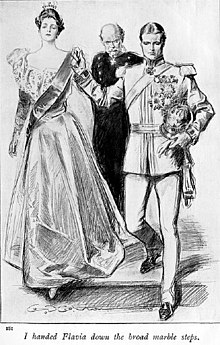
Sword and sorcery (S&S) or heroic fantasy is a subgenre of fantasy characterized by sword-wielding heroes engaged in exciting and violent adventures. Elements of romance, magic, and the supernatural are also often present. Unlike works of high fantasy, the tales, though dramatic, focus on personal battles rather than world-endangering matters. Sword and sorcery commonly overlaps with heroic fantasy. The genre originated from the early-1930s works of Robert E. Howard. The term "sword and sorcery" was coined by Fritz Leiber in the May 1961 issue of the fantasy fanzine Amra, to describe Howard and the stories that were influenced by his works. In parallel with "sword and sorcery", the term "heroic fantasy" is used, although it is a more loosely defined genre.

Syldavia is a fictional country in The Adventures of Tintin, the comics series by Belgian cartoonist Hergé. It is located in the Balkans and has a rivalry with the fictional neighbouring country of Borduria. Syldavia is depicted in King Ottokar's Sceptre (1938–1939), Destination Moon (1950), Explorers on the Moon, The Calculus Affair (1954–1956), and Tintin and the Lake of Sharks (1972), and is mentioned in Tintin and the Picaros (1975–1976).
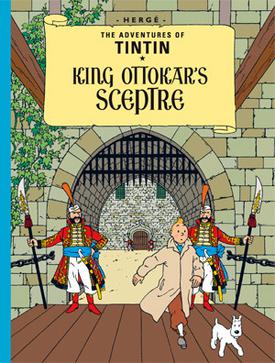
King Ottokar's Sceptre is the eighth volume of The Adventures of Tintin, the comics series by Belgian cartoonist Hergé. Commissioned by the conservative Belgian newspaper Le Vingtième Siècle for its children's supplement Le Petit Vingtième, it was serialised weekly from August 1938 to August 1939. Hergé intended the story as a satirical criticism of the expansionist policies of Nazi Germany, in particular the annexation of Austria in March 1938. The story tells of young Belgian reporter Tintin and his dog Snowy, who travel to the fictional Balkan nation of Syldavia, where they combat a plot to overthrow the monarchy of King Muskar XII.

The Prisoner of Zenda is an 1894 adventure novel by Anthony Hope, in which the King of Ruritania is drugged on the eve of his coronation and thus is unable to attend the ceremony. Political forces within the realm are such that, in order for the king to retain the crown, his coronation must proceed. Fortuitously, an English gentleman on holiday in Ruritania who resembles the monarch is persuaded to act as his political decoy in an effort to save the unstable political situation of the interregnum.
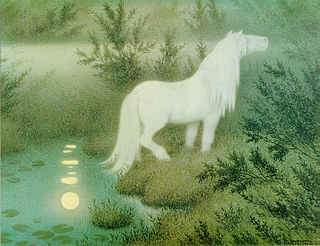
A fantasy world or fictional world is a world created for fictional media, such as literature, film or games. Typical fantasy worlds feature magical abilities. Some worlds may be a parallel world connected to Earth via magical portals or items ; an imaginary universe hidden within ours ; a fictional Earth set in the remote past or future ; an alternative version of our History ; or an entirely independent world set in another part of the universe.

Sir Anthony Hope Hawkins, better known as Anthony Hope, was a British novelist and playwright. He was a prolific writer, especially of adventure novels but he is remembered predominantly for only two books: The Prisoner of Zenda (1894) and its sequel Rupert of Hentzau (1898). These works, "minor classics" of English literature, are set in the contemporaneous fictional country of Ruritania and spawned the genre known as Ruritanian romance, books set in fictional European locales similar to the novels. Zenda has inspired many adaptations, most notably the 1937 Hollywood movie of the same name and the 1952 version.
Ruritania is a fictional country, originally located in Central Europe as a setting for novels by Anthony Hope, such as The Prisoner of Zenda (1894). Nowadays the term connotes a quaint minor European country, or is used as a placeholder name for an unspecified country in academic discussions. The first known use of the demonym Ruritanian was in 1896.

Historical fantasy is a category of fantasy and genre of historical fiction that incorporates fantastic elements into a more "realistic" narrative. There is much crossover with other subgenres of fantasy; those classed as Arthurian, Celtic, or Dark Ages could just as easily be placed in historical fantasy. Stories fitting this classification generally take place prior to the 20th century.

Fantasy literature is literature set in an imaginary universe, often but not always without any locations, events, or people from the real world. Magic, the supernatural and magical creatures are common in many of these imaginary worlds. Fantasy literature may be directed at both children and adults.
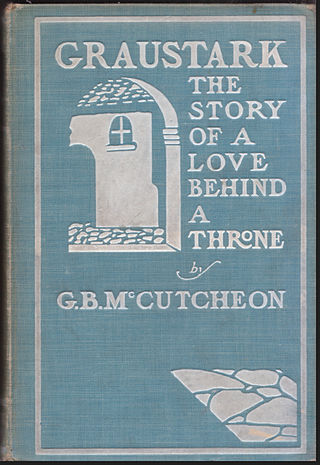
Graustark is a fictional country in Eastern Europe used as a setting for several novels by George Barr McCutcheon. Graustark's neighbors, which also figure in the stories, are Axphain to the north and Dawsbergen to the south.
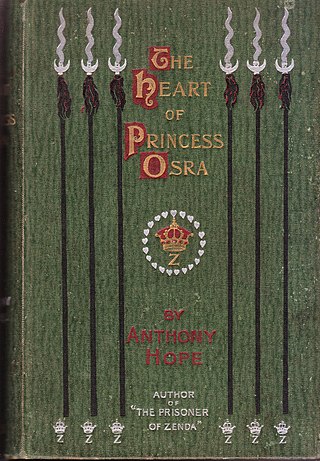
The Heart of Princess Osra is part of Anthony Hope's trilogy of books which spawned the genre of Ruritanian romance. This collection of linked short stories is a prequel: it was written immediately after the success of The Prisoner of Zenda (1894) and was published in 1896, but is set in the 1730s, well over a century before the events of the first novel and its sequel, Rupert of Hentzau (1898). The stories are set in the fictional country of Ruritania, a Germanic kingdom, and deal with the love life of Princess Osra of the House of Elphberg. Osra is the younger sister of Rudolf III, the shared ancestor of Rudolf Rassendyll, the English gentleman who acts as political decoy in The Prisoner of Zenda, and Rudolph V, the absolute monarch of Ruritania.

Planetary romance is a subgenre of science fiction in which the bulk of the action consists of adventures on one or more exotic alien planets, characterized by distinctive physical and cultural backgrounds. Some planetary romances take place against the background of a future culture where travel between worlds by spaceship is commonplace; others, particularly the earliest examples of the genre, do not, and invoke flying carpets, astral projection, or other methods of getting between planets. In either case, it is the planetside adventures which are the focus of the story, not the mode of travel.

Elements of the supernatural and the fantastic were an element of literature from its beginning. The modern genre is distinguished from tales and folklore which contain fantastic elements, first by the acknowledged fictitious nature of the work, and second by the naming of an author. Works in which the marvels were not necessarily believed, or only half-believed, such as the European romances of chivalry and the tales of the Arabian Nights, slowly evolved into works with such traits. Authors like George MacDonald (1824–1905) created the first explicitly fantastic works.
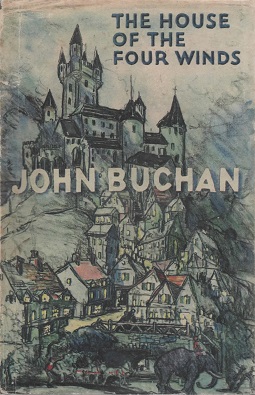
The House of the Four Winds is a 1935 adventure novel by the Scots author John Buchan. It is a Ruritanian romance, and the last of his three Dickson McCunn books. The novel is set in the fictional Central European country of Evallonia and opens two years after the events recounted in Castle Gay.
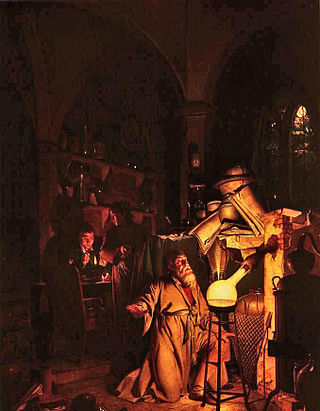
Elements of the supernatural and the fantastic were an element of literature from its beginning, though the idea of a distinct genre, in the modern sense, is less than two centuries old.

The Mad King is a Ruritanian romance by American writer Edgar Rice Burroughs, originally published in two parts as "The Mad King" and "Barney Custer of Beatrice" in All-Story Weekly, in 1914 and 1915, respectively. These were combined for the book edition, first published in hardcover by A. C. McClurg in 1926.

Fantasy is a genre of speculative fiction involving magical elements, typically set in a fictional universe and usually inspired by mythology or folklore. The term "fantasy" can also be used to describe a "work of this genre", usually literary.
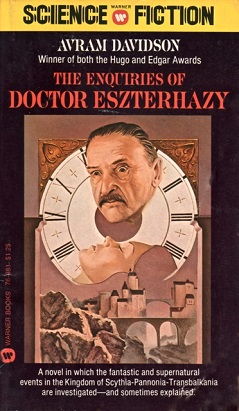
The Enquiries of Doctor Eszterhazy is a collection of historical mystery fantasy short stories by Avram Davidson featuring his scholarly detective character Doctor Eszterhazy and set in an imaginary European country. It was first published in paperback by Warner Books in December 1975. Its contents were later incorporated into the more comprehensive collection The Adventures of Doctor Eszterhazy (1991), which included five additional Eszterhazy stories written later but set earlier.
